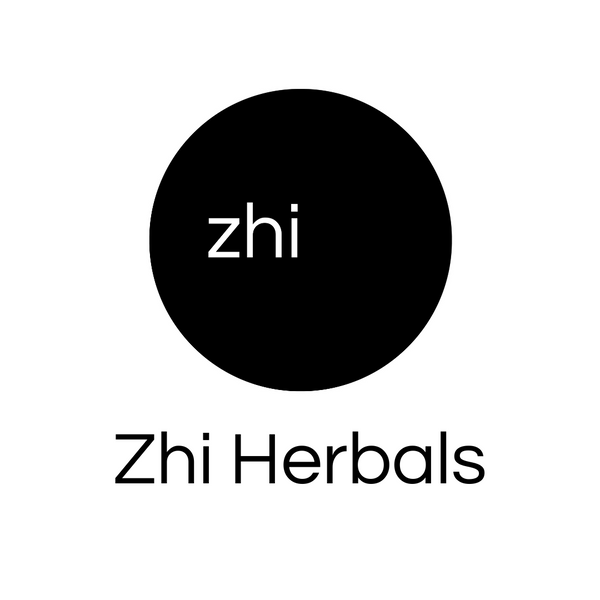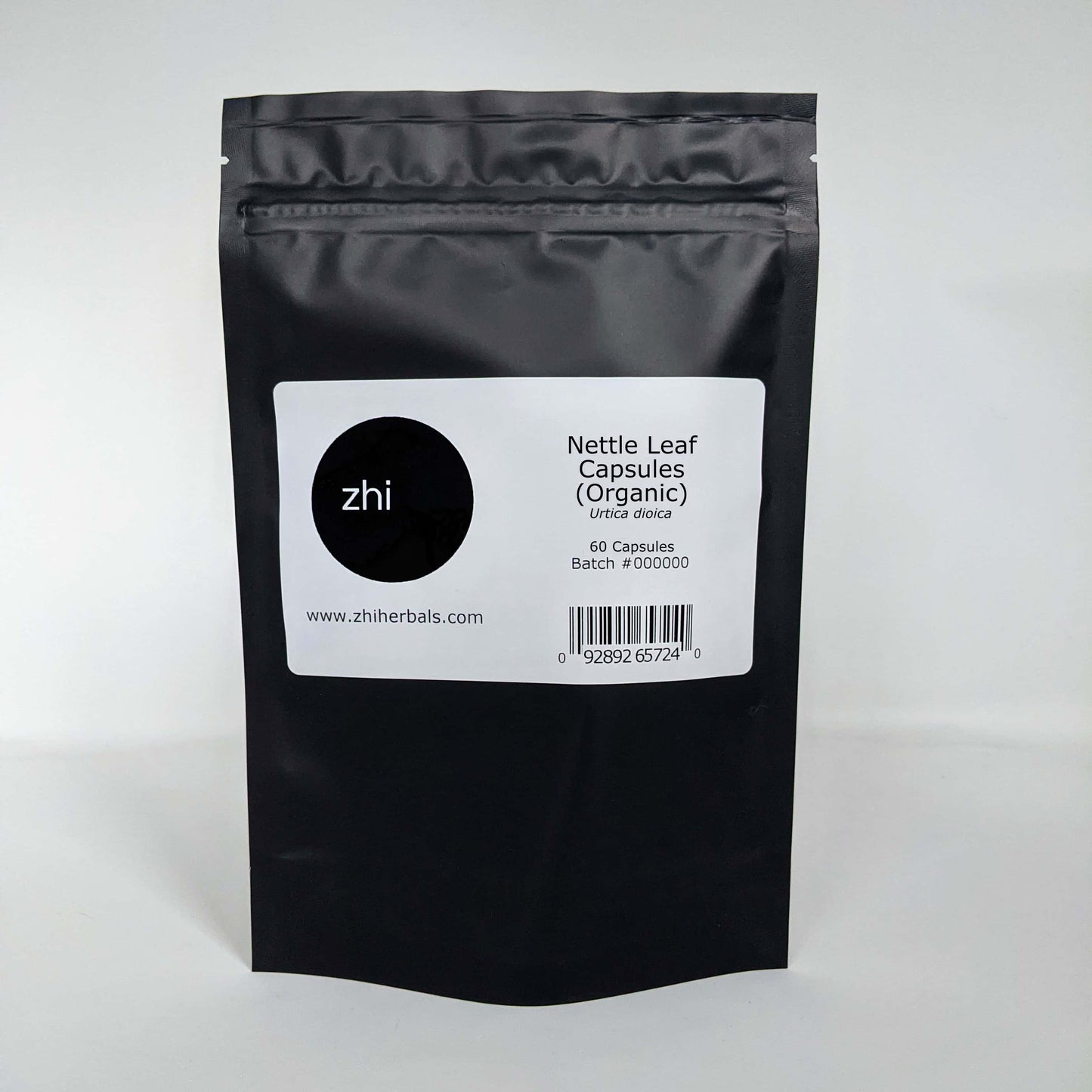Zhi Herbals
Nettle Leaf Capsules (Organic)
Nettle Leaf Capsules (Organic)
Couldn't load pickup availability
Each vegan capsule contains a 432mg serving.
Our capsules are 100% free from additives, fillers, and preservatives.
Common Name
Nettle, Stinging Nettle
Latin Name
Urtica dioica
Origin
Croatia
What Is Nettle Leaf?
Nettle leaf is a medicinal herb and traditional food that is used worldwide. It works well both on its own, and when combined with other herbs.
How to Use Nettle Leaf (Common Uses)
Nettle leaves can be taken internally as a tea, powder, or capsules. They can also be used in cooking, and are a popular springtime herb amongst wild-crafters and pesto-makers. Visit our herbal blog for more inspiration about how to use nettle leaf.
Medicinal Uses and Benefits of Nettle Leaf
Nettle leaf can be found as an ingredient in our Allergy Relief Tea, Anti-Stress Tea, Cooling Detox Tea, and Gout Relief Tea.
Nettle leaves have a mild potassium-sparing diuretic action. They benefit and support healthy urinary function, and could be especially helpful for those suffering from mild hypertension and kidney disorders.
Nettle leaves can help to increase the removal of uric acid from the body, and can provide benefits for those with edema, arthritis, and swollen joints.
As a gentle detoxifying herb, nettle leaf has a cleansing effect on the lymphatic system, and is often used for a variety of ailments involving the skin.
Nettle leaf is a potent anti-inflammatory. It can help to reduce allergic reactions to both seasonal and non-seasonal allergens.
Traditionally, nettle leaf has been used in herbal medicine for its nutritive benefits. It is high in iron and B vitamins, and can be useful for those suffering from anemia.
Active Constituents in Nettle Leaf
Flavonol glycosides, quercetin, vitamin C, vitamin K, vitamin D, carotenoids, potassium, iron, calcium, magnesium, zinc, selenium.
Notable Facts About Nettle Leaf
Nettle leaves are known for their ‘sting’. The stinging sensation is caused by the tiny hairs found on fresh nettle leaves and stems, which release formic acid and cause urticaria, a painful stinging rash, when touched with bare skin. If nettle leaves are processed in some way, such as dehydration or put fresh in a blender, urticaria is not a concern.
Cooked fresh stinging nettles taste similar to cooked baby spinach.
Fresh nettle leaves can be applied topically to help stop the bleeding of small cuts.


